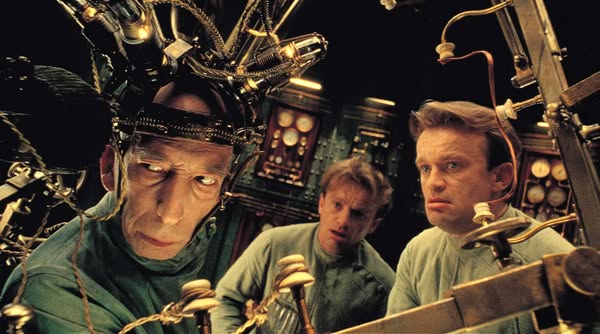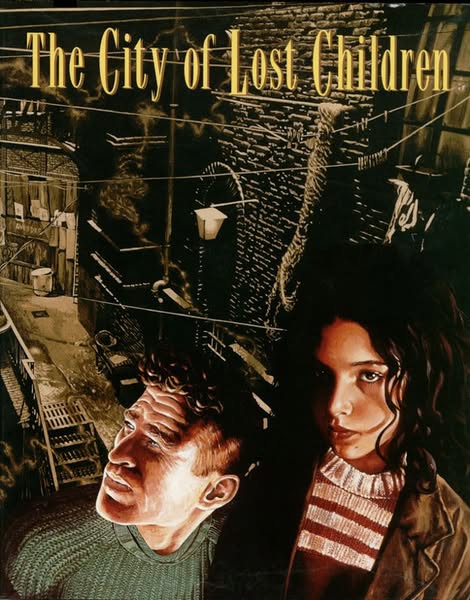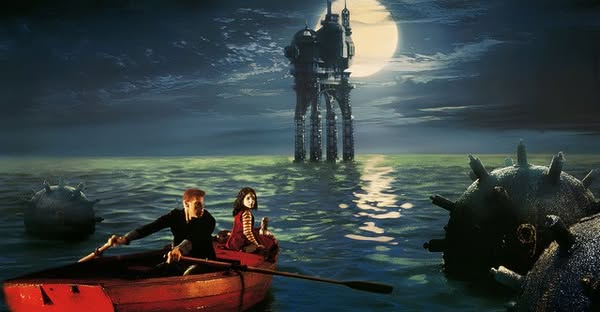The City of Lost Children (1995)

The City of Lost Children (1995), directed by Marc Caro and Jean-Pierre Jeunet, is a visually stunning and surreal fantasy film that transports viewers to a dark, whimsical world filled with imagination and intrigue. Set in a dystopian city, the film weaves together themes of childhood innocence, memory, and the quest for love and belonging.
The story revolves around a brilliant but sinister scientist named Krank, played by Daniel Emilfork, who is obsessed with stealing the dreams of children to prolong his own life. Unable to dream himself, he kidnaps children from the city, hoping to capture their dreams. The film’s protagonist, a strong and determined circus performer named One, portrayed by Ron Perlman, embarks on a quest to rescue his little brother, who’s been abducted by Krank.

Visually, The City of Lost Children is a feast for the eyes, featuring a unique blend of steampunk and surrealist aesthetics. The production design, characterized by elaborate sets and imaginative costumes, creates a hauntingly beautiful atmosphere that immerses viewers in its fantastical world. The cinematography, with its rich color palettes and intricate details, enhances the film’s dreamlike quality.
The film also boasts a memorable ensemble cast, including Judith Vittet as the resourceful little girl Miette, who becomes One’s ally in the search for the missing children. Their relationship adds emotional depth to the narrative, highlighting themes of friendship and the power of connection in the face of adversity.

The score, composed by Angelo Badalamenti, complements the film’s tone, blending haunting melodies with whimsical elements that reflect the story’s emotional undercurrents. The music enhances the film’s atmosphere, drawing viewers deeper into its enchanting yet eerie landscape.

The City of Lost Children challenges viewers with its complex narrative and rich symbolism, exploring the nature of dreams, the loss of innocence, and the dark underbelly of society. Its blend of fantasy and horror, coupled with its striking visual style, has earned it a cult following and critical acclaim.
In summary, The City of Lost Children is a captivating and imaginative film that combines stunning visuals with a poignant narrative. Its exploration of childhood, dreams, and the human experience makes it a memorable entry in the realm of fantasy cinema. With its unique style and thought-provoking themes, the film continues to resonate with audiences, solidifying its place as a modern classic.











